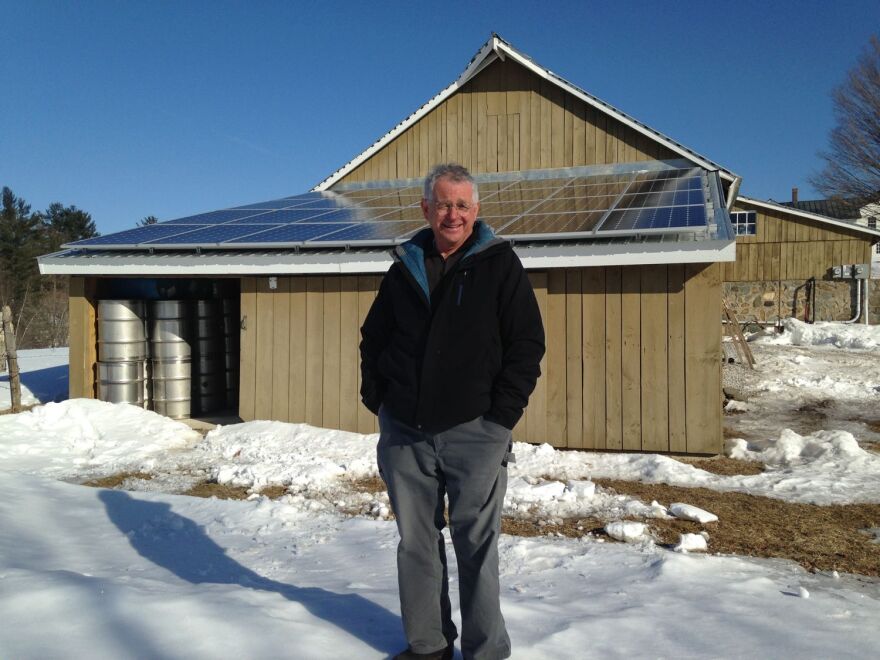Maple syrup producers use a lot of energy boiling sap. Efficiency Vermont, the statewide nonprofit funded by utility customers, hopes a new rebate program they’re launching will help smaller maple producers save energy and boost profits.
On a recent blustery day, Chittenden farmer Bob Baird talked about plans to expand what he describes as a medium-sized sugaring operation. He's got more than 8,000 taps and, weather permitting, hopes to produce 4,000 gallons of syrup this year.
"Our biggest expense, other than labor, is energy," says Baird. "Whether it’s electricity or fuel oil. So our goal is to reduce both of those expenses."
Baird recently installed solar panels on his sugaring house, but says the single biggest way for maple syrup producers to reduce energy consumption is with reverse osmosis technology.
Sliding open a large wooden door, Baird shows off the machines he uses, which on this chilly March morning are surprisingly quiet. “"Typically we save about 10,000 gallons of fuel oil a year with the reserve osmosis," says Baird. "We have two machines that basically are taking most of the water out of the sap before we boil it."
Efficiency Vermont hopes new rebates, on top of already existing manufacturing discounts, will help make cost-saving reverse osmosis machines more affordable.
Baird says the equipment saves him about $30,000 a year in fuel costs. But the machinery is expensive. He says the equipment he uses would cost about $65,000 if he were to buy it new today.
Smaller, less costly models are available, but with starting prices ranging between $3,500 and $4,000, they're still too pricey for many.
J.J. Vandette, agriculture planning manager at Efficiency Vermont, hopes new rebates provided by the nonprofit, on top of already existing manufacturing discounts, will help make reverse osmosis more affordable. "We recognized that there was a cost barrier there for the small and medium-sized sugar makers to invest in the technology," says Vandette. "So we're looking to get over the hurdle and promote this cost-effective technology to folks who have not yet installed the reverse osmosis technology."

Vandette says Efficiency Vermont has budgeted $135,000 for the program. But he says they haven't finalized how much individual rebates will be worth, saying that won't be determined until the program is launched at the end of April.
He says large-scale industrial-type sugaring operations in planning or under construction would not qualify for the program.
Chittenden maple farmer Bob Baird says improved efficiency is something all farmers should work toward, but he admits everyone in the maple business worries about too much expansion. "And anything that encourages expansion and people add taps," he says, "because what people find out when they have reverse osmosis is that they can handle a lot more taps. So an expansion in a business is good up to a limit, but at some point supply and demand have to equal out. And that’s always a concern in this industry."





